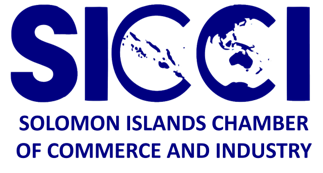
All sections of our society, including businesses and employers, must play a role if we are to stop the spread of COVID-19 (coronavirus) in Solomon Islands, according to the World Health Organization and the Ministry of Health and Medical Services.
Solomon Islands must be ready for the first case, the first cluster of cases, the first evidence of community transmission – at the same time.
Officials from WHO and MHMS last week briefed State-Owned Enterprises (SOEs) and the private sector, represented by the Solomon Islands Chamber of Commerce and Industry (SICCI), on the preparations for the threat of coronavirus.
They highlighted measures employers and businesses can take which includes:
· Simple ways to prevent the spread of COVID-19 in the workplace,
· things to consider when employees travel overseas and,
· getting businesses ready in case COVID-19 arrives in the community.
Dr Yogesh Choudhri, Technical Advisor with WHO, reiterated that now is the time to prepare for COVID-19. Simple precautions and planning can make a big difference in helping protect employees and businesses.
WHO advises that there are low-cost measures which will help prevent the spread of infections in workplaces, such as colds, flu and stomach bugs, and protect customers, contractors and employees. Should COVID-19 arrive, employers can reduce working days lost due to illness and stop or slow the spread of the virus.
Make sure workplaces are clean and hygienic
WHO advises that surfaces (desks and tables) and objects (telephones, keyboards) need to be wiped with disinfectant regularly because COVID-19 can contaminate these surfaces.
Promote regular and thorough hand-washing by employees, contractors & customers
Put sanitizing hand rub dispensers in prominent places around the workplace making sure these dispensers are regularly refilled and display posters promoting hand-washing and coughing etiquette (these can be downloaded here: www.solomons.gov.sb or look on www.WHO.int)
Combine this with other communication measures such as offering guidance from occupational health and safety officers, briefings at meetings and information on the intranet to promote hand-washing.
And make sure that staff, contractors and customers have access to places where they can wash their hands with soap and water.
This is because washing kills the virus on your hands and prevents the spread of COVID-19.
Employers and businesses are also encouraged to promote good respiratory hygiene – such as covering your mouth and nose when coughing or sneezing as this also prevents the spread of COVID-19.
It is essential that, should COVID-19 start spreading in the community, employees and contractors know to stay at home. “Anyone with even a mild cough or low-grade fever (37.3 C or more) needs to stay at home or work from home,” WHO advises.
Things to consider when travelling
Employees and contractors should also consult national travel advice before going on business trips.
· Make sure your organization and its employees have the latest information on areas where COVID-19 is spreading. You can find this at https://www.who.int/emergencies/diseases/novel-coronavirus-2019/situation-reports/
· Based on the latest information, your organization should assess the benefits and risks related to upcoming travel plans.
· Avoid sending employees who may be at higher risk of serious illness (e.g. older employees and those with medical conditions such as diabetes, heart and lung disease) to areas where COVID-19 is spreading.
· Make sure all persons travelling to locations reporting COVID-19 are briefed by a qualified professional (e.g. staff health services, health care provider or local public health partner)
· Consider issuing employees who are about to travel with small bottles (under 100 CL) of alcohol-based hand rub. This can facilitate regular hand-washing.
· Encourage employees to wash their hands regularly and stay at least one meter away from people who are coughing or sneezing
· Ensure employees know what to do and who to contact if they feel ill while traveling.
· Ensure that your employees comply with instructions from local authorities where they are traveling. If, for example, they are told by local authorities not to go somewhere they should comply with this. Your employees should comply with any local restrictions on travel, movement or large gatherings.
WHO advises that employees who have returned from travel in an area where COVID-19 is spreading should monitor themselves for symptoms for 14 days and take their temperature twice a day.
“If they develop even a mild cough or low-grade fever (i.e. a temperature of 37.3 C or more) they should stay at home and self-isolate. This means avoiding close contact (one meter or nearer) with other people, including family members. They should also telephone their healthcare provider or the local public health department, giving them details of their recent travel and symptoms.”
Meanwhile, SICCI, as the main private sector representative in the country, encourages all its members to take heed of this advice from WHO and MHMS.
“Please be extra alert for sick workers. We also encourage innovative measures such as work-from-home arrangements. Have plans for managing increased sick leave by workers to ensure continuity.
“With small-sized suppliers and especially tourism-related businesses, we encourage members to pay invoices promptly to reduce cash-flow pressures,” SICCI advised its members.
-SICCI MEDIA
Comments